There are dozens of valid ways to raise children. And every parent will have to make decisions about what works best for their family. Should their kids be allowed to watch television on school nights? How often should the children be given dessert? And is a public school education really the best option for them?
We can’t make these decisions for anyone else’s kids, so we must respect what their parents decide. But one mother couldn’t keep her opinions to herself when she realized that a close friend’s child might be putting other kids in danger. Below, you’ll find a post that this concerned mom recently shared on Reddit detailing why she won’t allow her son to be around a friend’s unvaccinated baby.
All parents want to do everything they can to protect their children

Image credits: Natalia Blauth / Unsplash (not the actual photo)
So when this mom found out that a friend has no plans to vaccinate her baby, she decided that she’ll be keeping her own son far away
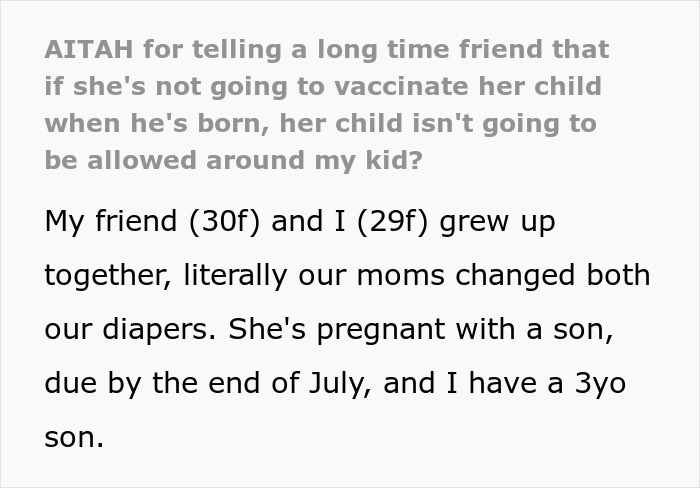
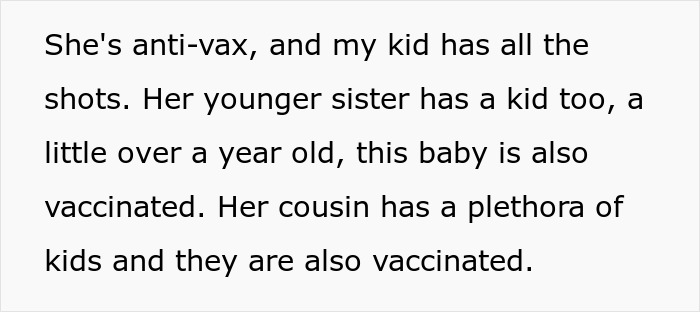
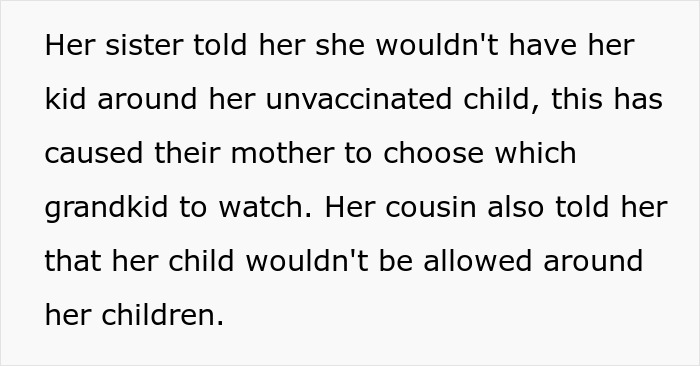
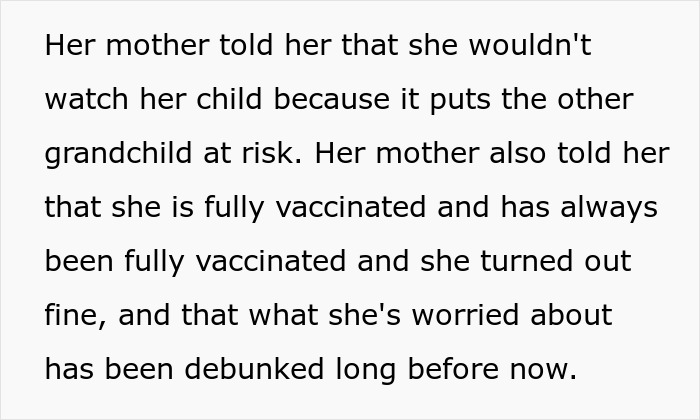

Image credits: Ron Lach / Pexels (not the actual photo)

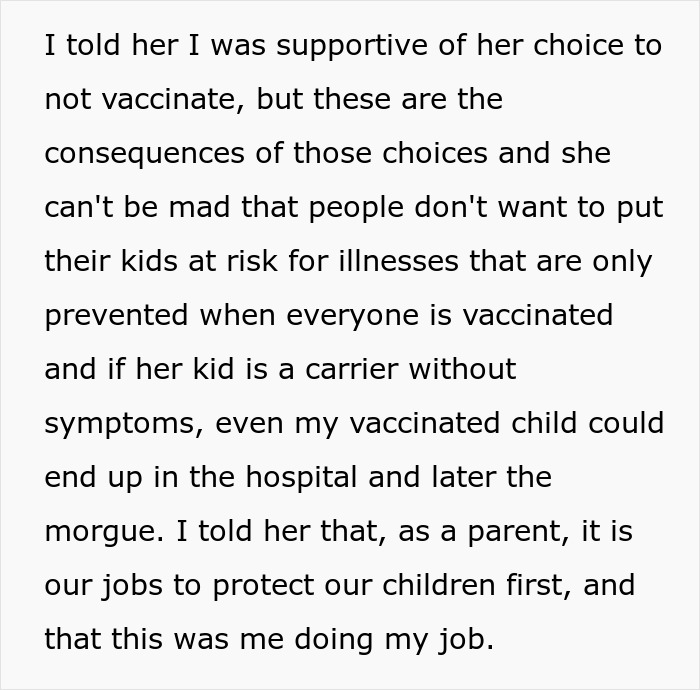


Image credits: Sultry-Blooms

Image credits: Mufid Majnun / Unsplash (not the actual photo)
Vaccines have saved millions of lives over the past few decades
Vaccinating children against infectious diseases has been the standard in the United States since the 1940s. Vaccines have saved countless people from contracting smallpox, diphtheria, tetanus, pertussis, polio, measles, mumps, rubella, hepatitis B and more.
Naturally, most parents are happy to get their children vaccinated per their doctor’s recommendations. However, for some reason, there has been a growing skepticism around vaccines in recent years.
According to USA Facts, only 72.8% of children born during 2020 and 2021 received their full set of seven vaccines by the time they were three years old. Meanwhile, nearly 75% of kids born during 2013 and 2014 had been given their full set of vaccines by age three.
Despite the fact that vaccines have been proven to save lives (over 154 million by the World Health Organization’s count), some parents still refuse to acknowledge the importance of these shots. And one reason for this is because myths surrounding vaccinations have been running rampant online in recent years.
Resistance to taking the COVID-19 vaccine seems to have sparked widespread skepticism around all vaccines, even ones that have been around for nearly a century. So with the help of Rush University Medical Center, let’s bust some of the most common myths that you’ve probably heard about vaccines.
First and foremost, there is absolutely no evidence that vaccines cause autism. This rumor began in 1997 with a study conducted by someone who has since lost his medical license. Autism experts agree that autism is determined prior to birth and is not impacted by vaccines whatsoever.

Image credits: Getty Images / Unsplash (not the actual photo)
Failing to vaccinate children can impact the entire community
There’s also a common misconception that vaccines contain unsafe toxins. While some do contain trace amounts of formaldehyde, mercury and aluminum, Rush University Medical Center notes that the amounts present are far lower than what would be toxic to humans. And these additives actually help keep vaccines sterile and safe.
Now, if you believe that failing to vaccinate your child will only impact them, that’s also incorrect. It might have been the case if every single person in a community except one child was vaccinated.
But nowadays, we cannot rely on “herd immunity,” as too many parents have chosen to opt out of vaccinating their children. So when we have outbreaks, these infectious diseases that were once nearly eradicated can spread extremely quickly.
As of October 2025, the United States Centers for Disease Control has confirmed 1,596 cases of measles, and three people have already tragically lost their lives from this disease. Unsurprisingly, 92% of those infected were unvaccinated. But what’s even more heartbreaking is that two thirds of those infected were under the age of 20, meaning they likely had no say in their vaccination status.
The majority of choices that we make about our bodies are personal and have no impact on anyone else. However, when it comes to vaccinating your children, it keeps not only them safe, but also their classmates, siblings and anyone else they might encounter in the community.
We would love to hear your thoughts on this situation in the comments below, pandas. Then, if you’re looking for another Bored Panda article discussing similar issues, look no further than right here.
Some readers chimed in with similar stories about anti-vax friends and family members
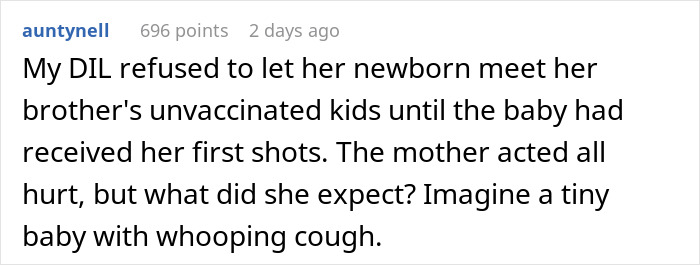
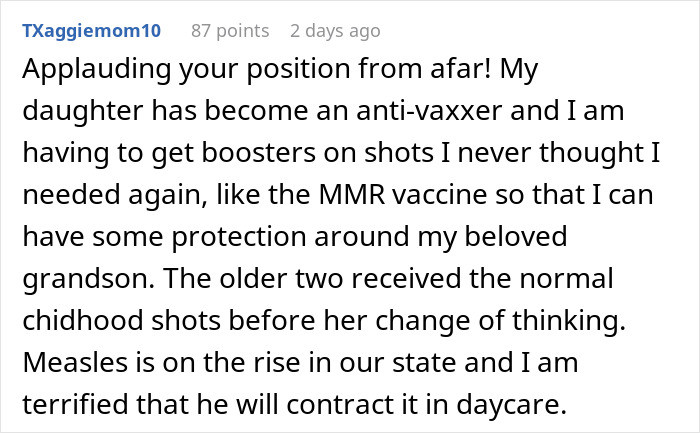

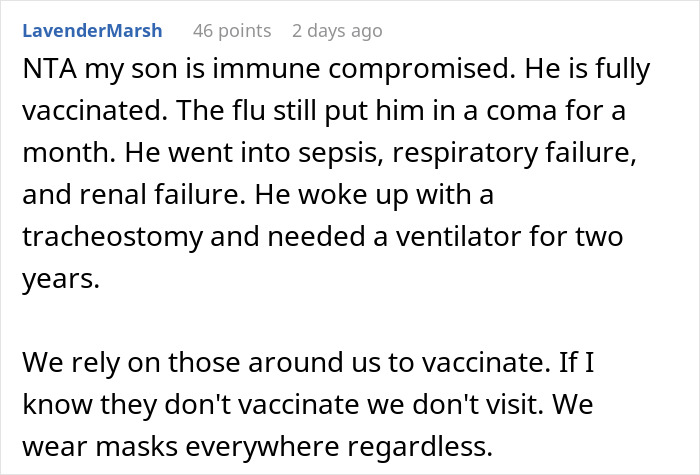
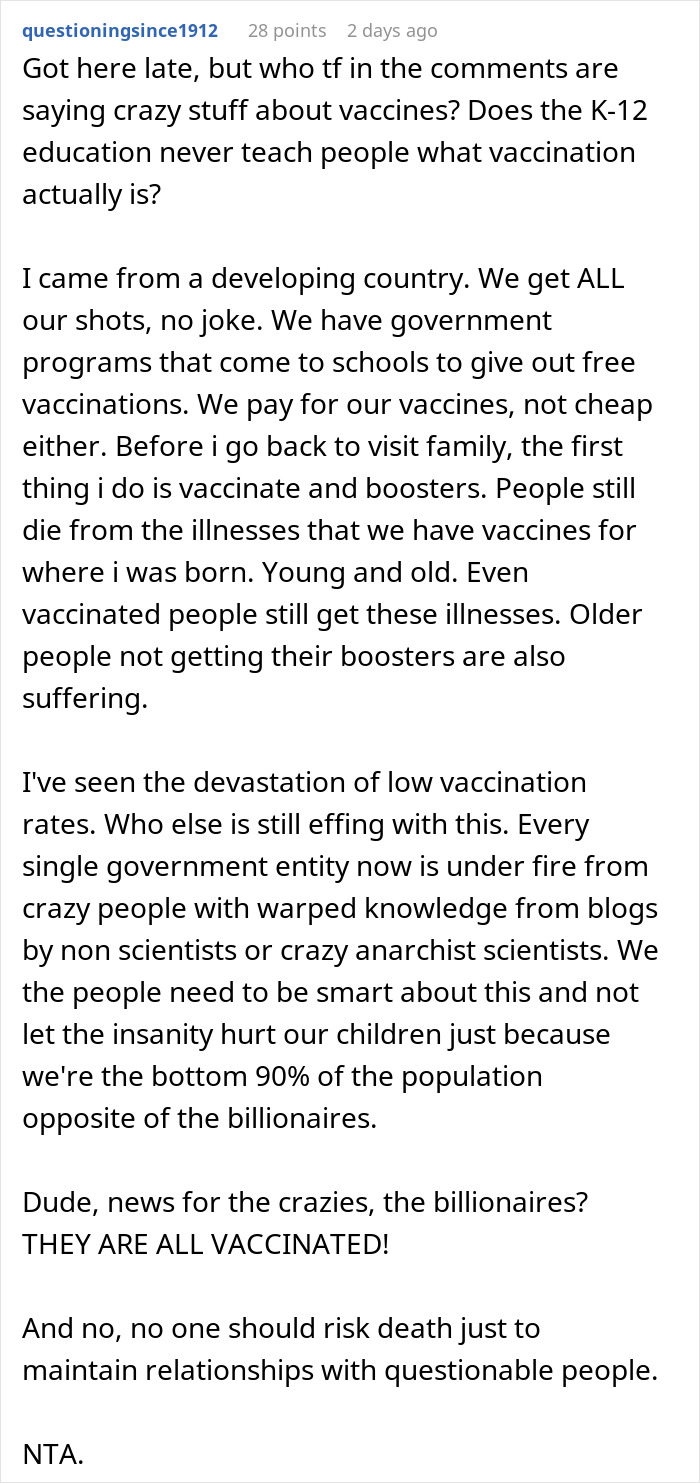
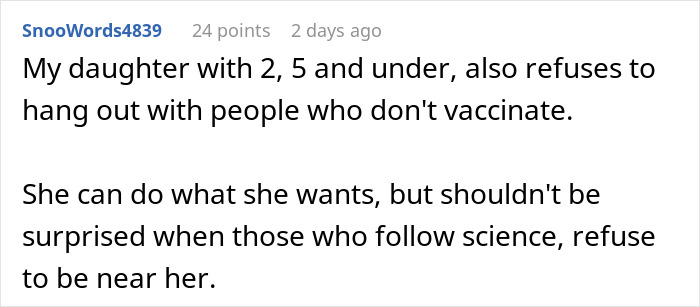
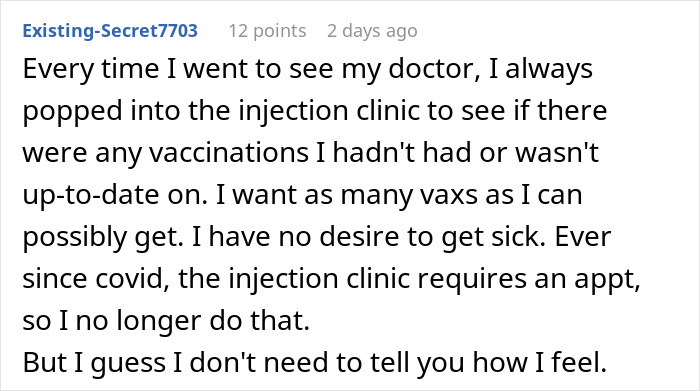
Many readers agreed that the author had every right to set boundaries and protect her child



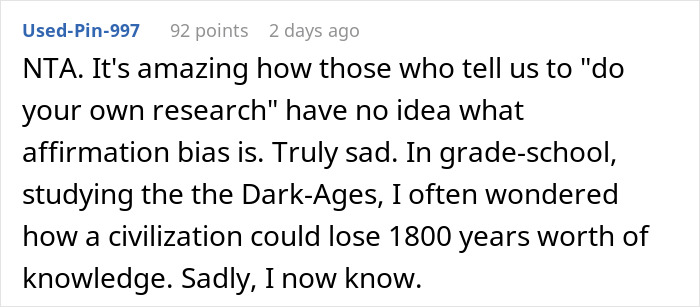



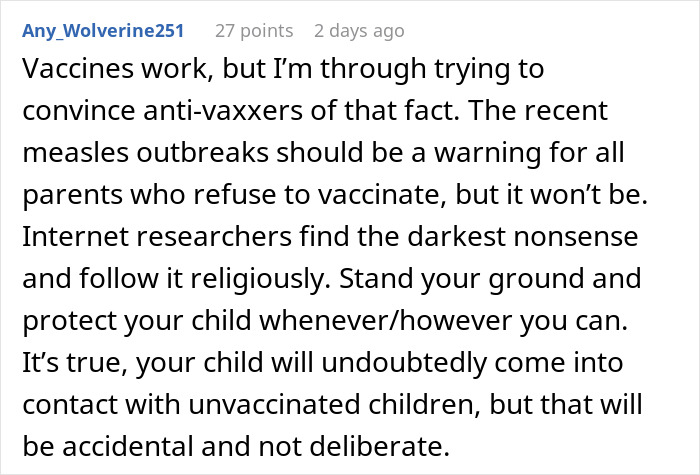

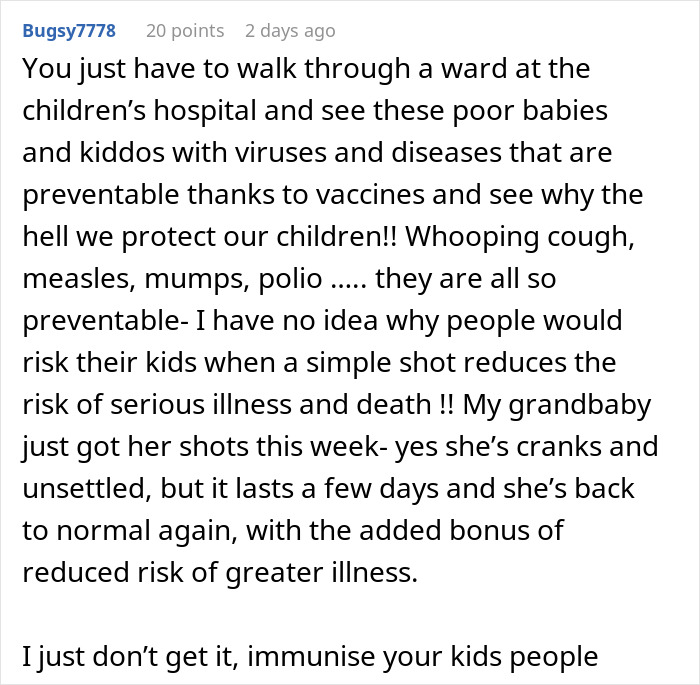

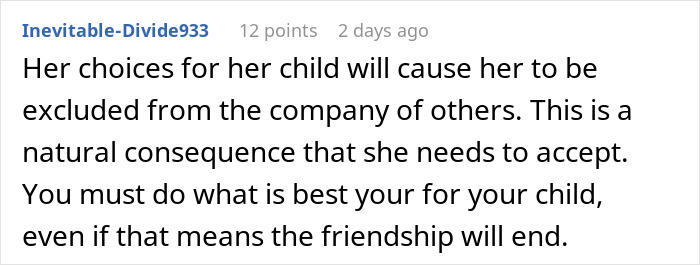
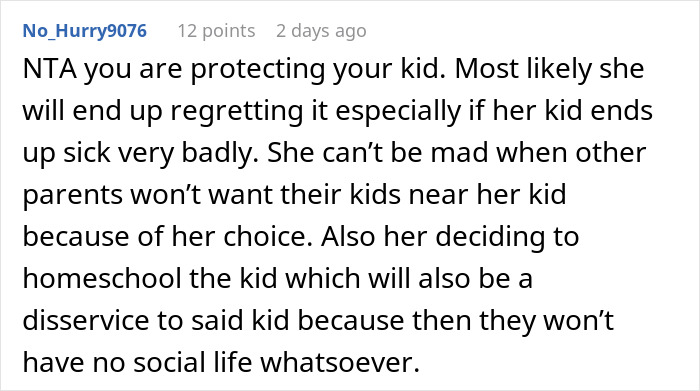
Later, the mom shared a brief update and clarified some details about the situation

Image credits: The Yuri Arcurs Collection / Freepik (not the actual photo)

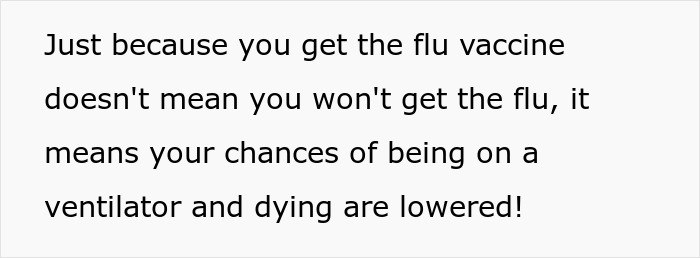
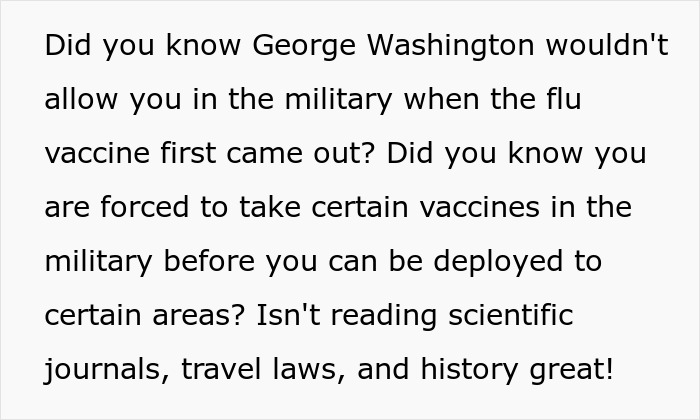
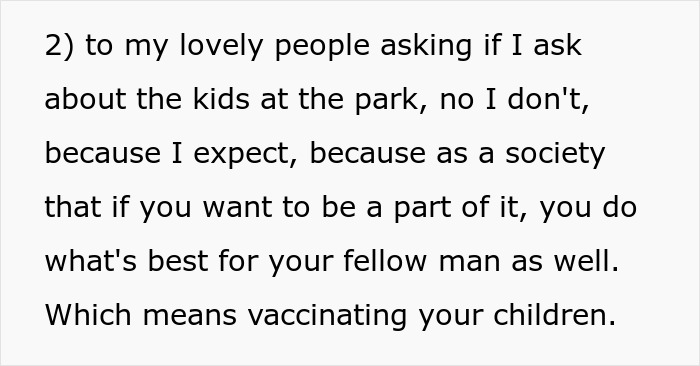
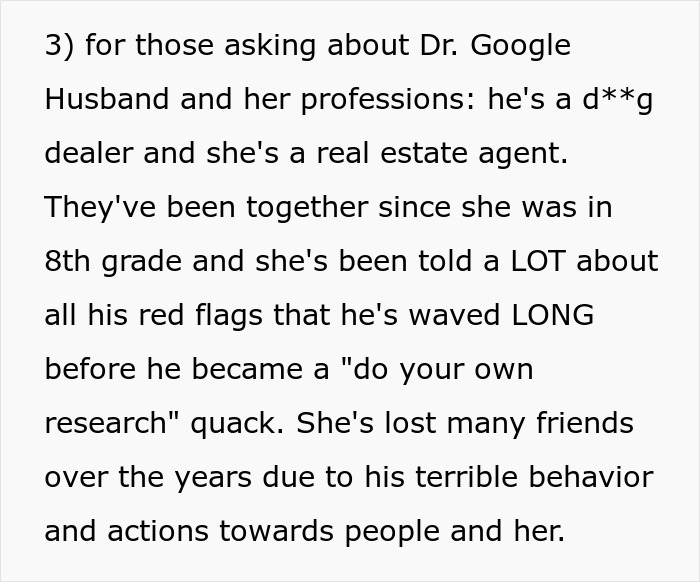

Image credits: Getty Images / Unsplash (not the actual photo)
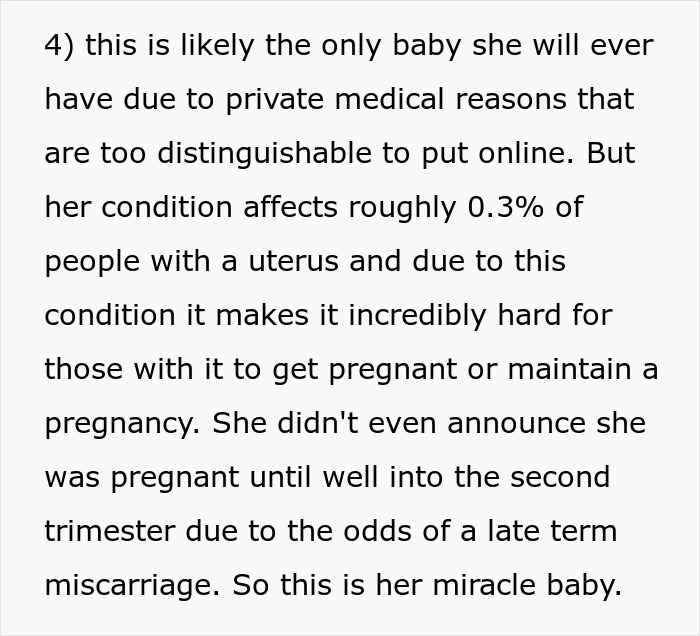
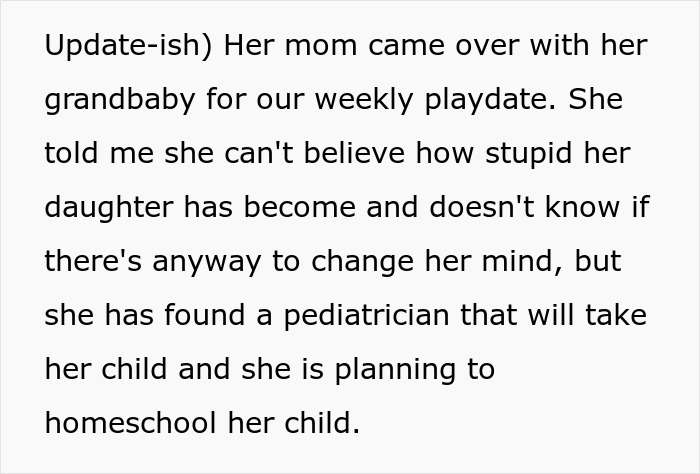
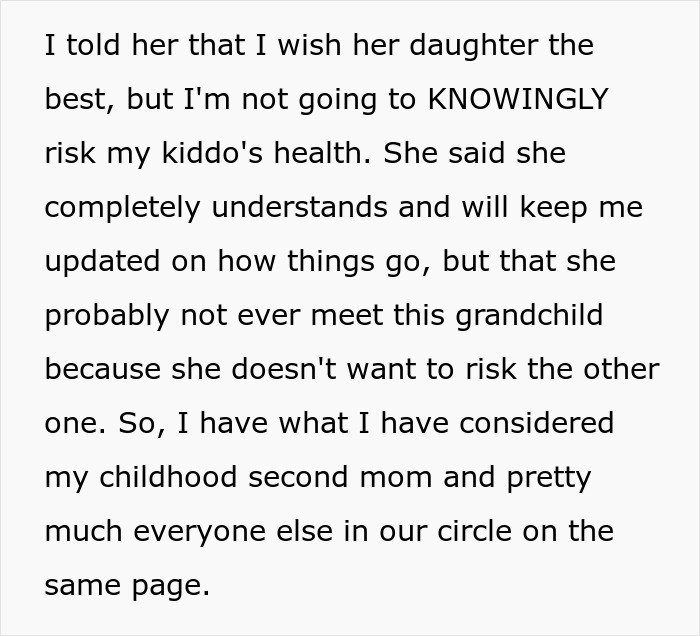

Image credits: Sultry-Blooms
from Bored Panda https://ift.tt/6DMdZqN
via IFTTT source site : boredpanda